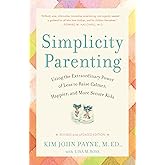
Download the free Kindle app and start reading Kindle books instantly on your smartphone, tablet, or computer - no Kindle device required.
Read instantly on your browser with Kindle for Web.
Using your mobile phone camera - scan the code below and download the Kindle app.

OK
You Are Your Child's First Teacher: What Parents Can Do With and For Their Chlldren from Birth to Age Six Paperback – August 1, 2000
There is a newer edition of this item:
$16.29
(341)
Only 1 left in stock - order soon.
- Print length400 pages
- LanguageEnglish
- PublisherCelestial Arts
- Publication dateAugust 1, 2000
- Dimensions6 x 1 x 9.25 inches
- ISBN-109780890879672
- ISBN-13978-0890879672
The Amazon Book Review
Book recommendations, author interviews, editors' picks, and more. Read it now.
Similar items that may deliver to you quickly

 Beyond the Rainbow Bridge: Nurturing Our Children from Birth to SevenBarbara J. PattersonPerfect Paperback
Beyond the Rainbow Bridge: Nurturing Our Children from Birth to SevenBarbara J. PattersonPerfect Paperback
Product details
- ASIN : 0890879672
- Publisher : Celestial Arts; Revised edition (August 1, 2000)
- Language : English
- Paperback : 400 pages
- ISBN-10 : 9780890879672
- ISBN-13 : 978-0890879672
- Item Weight : 1.1 pounds
- Dimensions : 6 x 1 x 9.25 inches
- Best Sellers Rank: #1,566,608 in Books (See Top 100 in Books)
- #877 in Home Repair
- #1,639 in Family Activity
- #14,806 in Parenting (Books)
- Customer Reviews:
About the author

Discover more of the author’s books, see similar authors, read author blogs and more
Customer reviews
Customer Reviews, including Product Star Ratings help customers to learn more about the product and decide whether it is the right product for them.
To calculate the overall star rating and percentage breakdown by star, we don’t use a simple average. Instead, our system considers things like how recent a review is and if the reviewer bought the item on Amazon. It also analyzed reviews to verify trustworthiness.
Learn more how customers reviews work on Amazon-
Top reviews
Top reviews from the United States
There was a problem filtering reviews right now. Please try again later.
I am completely put off by reviewers splattering their judgements of cultish, religous etc around this book. I just don't get it. If someone writes about Montisorei they reference Maria Montisori. If someone writes about Multiple Intellegence education they reference Harvard's Garnier. The primary researcher is always the source of the knowledge. Let's stick to what we know and not conjecture and judge what we do not know. Steiner was definitely on the something, and in today's world we definitely need all the help we can get in raising a new breed of human.
Thanks to new scientific research we now know this is erroneous. Here are some more up to date facts on breastfeeding past 12 months:
Breast milk continues to provide substantial amounts of key nutrients well beyond the first year of life, especially protein, fat, and most vitamins
In the second year (12-23 months), 448 mL of breast milk provides:
29% of energy requirements
43% of protein requirements
36% of calcium requirements
75% of vitamin A requirements
76% of folate requirements
94% of vitamin B12 requirements
60% of vitamin C requirements
Human milk expressed by mothers who have been lactating for greater than one year has significantly increased fat and energy contents, compared with milk expressed by women who have been lactating for shorter periods. Also some of the immune factors in breastmilk increase in concentration during the second year and also during the weaning process. Not coincidentally this is the time when toddlers need more immune protection and extra energy as they are more interactive and explorative with their surroundings and other children.
Breastfeeding toddlers between the ages of one and three have been found to have fewer illnesses, illnesses of shorter duration, and lower mortality rates.
I think this book is a good way to learn more about the Waldorf and Steiner perspective, but do not expect much in the way of factual evidence. Instead she relies on anecdote, and sometimes her own perception of what she has seen.
Example: Dancy says that children should be given natural and unfinished toys like dolls without finished faces and gives a couple reasons. I agree that these toys are more attractive and interesting to children and toddlers, but it's her backup examples that were purely speculative. One reason was that she once saw a photopgraph of a child holding a finished toy with a smile, and she thought the child was blindly imitating the toy's expression. Her second reason was that she heard a story about a girl who was droopy and listless and always carried around a doll that was droopy and listless. When the girl was given a new toy that was more natural, then the girl perked right up.
Overall, this book provides an interesting perspective, but it is suffused with Steiner's spiritual insights (which sometimes sound a bit wierd). Dancy offers her reader a very loving and caring approach to child raising that make one more aware. The book allows for some thoughtful reflection on the part of her audience. But do not read this book expecting much in the way of research. She makes a lot of statements and contentions that do not have any citation or evidence to back them up. Thankfully, she does refer to the work of David Elkind, professor at Tufts, a few times and his research into child development.
I read this book with thoughtful interest and brought along a grain of salt.








